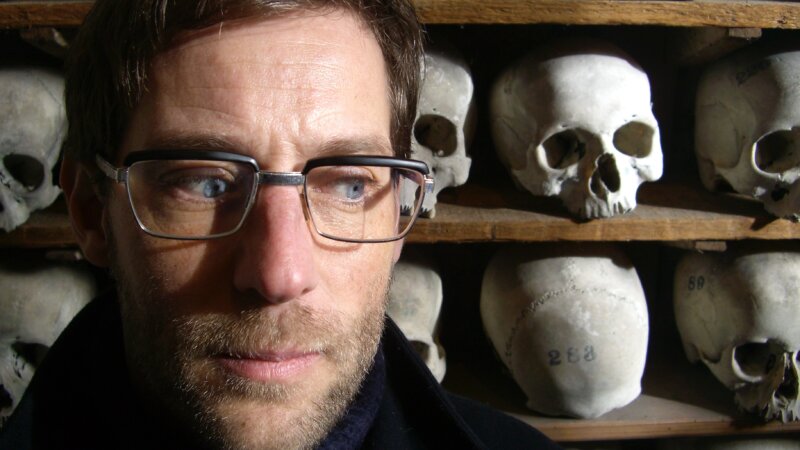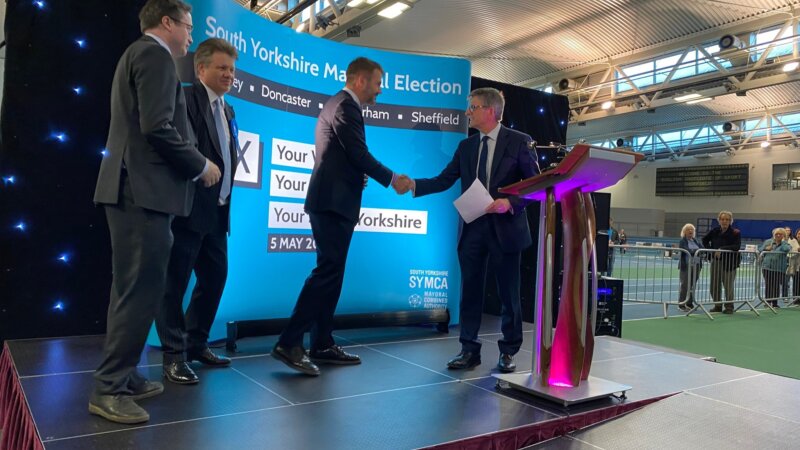Musicians Without Borders: War Divides, Music Connects
War Divides, Music Connects' is the ethos central to the work Musicians Without Borders does both nationally and internationally. Last month I spoke to Lis Murphy, who set up the UK branch of Musicians Without Borders, to find more about this powerful philosophy and the way it has been put into practice.
Musicians without Borders is a well established international charity. Could you tell me about the background of the organisation?
Musicians Without Borders was set up about 12 years ago in the Netherlands in response to the Kosovan war. A group of musicians went out there to see how they could help the community and what they found was that music was a really powerful way of helping to reduce the immediate stress and anxiety caused by the trauma that people had been through and were still going through, through the psychosocial properties of music.
We know that music changes the heart beat, breathing and hormone levels and that it has a chemical effect on the body and brain. This meant that people, for that two hours that they were playing music, forgot about their other problems and were just in the zone. We also found that somehow the emotional connection of music enabled people to express things that were too difficult to say in words, allowing them to find a connection with something that brought them moments of joy and moments of sorrow that were more important than ethic differences that had been exacerbated because of the conflict in that region. We found that, by creating a culture of mutual respect and tolerance for each other's music and through singing in different languages, people were slowly able to come together and engage with each other.
That developed into a rock school in Mitrovica, Kosovo, still arguably the most divided city in Europe. We have two rock schools, one on either side of the bridge, and we bring the young people to Macedonia, a completely different country, where they join bands together. When they go back they then communicate through pirate radio and the internet. Last year one of the bands actually crossed the bridge, which never happens in Mitrovica. They were seen by a MWB staff member and as this was quite dangerous they were asked what they were doing. Their reply was they just wanted to go and jam with their mates on the other side of the bridge. This kind of casual, relaxed thing to do was actually quite a significant step.
What was your inspiration for setting up the UK branch of MWB?
I spent a lot of time working in Bosnia, doing music projects with kids, and I always had a real passion for the region, the music and the people. I also saw first-hand how music was really amazing in conflict and post-conflict situations. I was put in touch with Musicians Without Borders International and chatted to them about my ideas and what I wanted to do. They said go and set it up in the UK and that's what I did. We have been a registered charity here for about two years.
Since setting up in the UK, can you think of any particularly poignant examples of music overcoming division?
One of the first projects we did was working in drop-in centres with refugees and asylum seekers, some of whom had recently arrived from conflict areas, didn't speak English or know where they were going to live and were still in quite stressful situations. We would go into the centres and just gather the group, get some music going and start learning songs in other people's languages. They would choose a favourite tune from their country and then teach it to us and so on.
The way that we work is about empowerment. We don't go in and say "You're all going to learn this." The songs that we chose are very much from the participants who are there, representing their language and their culture, giving them a chance to contribute to the community, where normally they feel powerless and unable to contribute at all.
Also we have a mutual respect for people regardless of their social, religious and cultural backgrounds. One example I remember, was a guy who had come from Pakistan and he was actually Christian. When I met with him I said, "I only know one Pakistani song called 'Allah Hi Allah'", and he said, "Ah, I don't like these Muslim songs, I don't want to sing it. I've had such a bad time in Pakistan." After working with him for a few weeks, there was another Pakistani woman who came and she was Muslim. She said, "Can we sing 'Allah Hi Allah'?", and eventually she was saying to him, "Come on, join in, it's such a beautiful song!" and he said, "Yeah, you're right actually, it is beautiful" and joined in. That seems like a tiny thing but somehow we had helped him experience something positive that meant that he was able to let go of his prejudice.
What are the main projects you currently working on?
One of our main projects now is a group called Stone Flower, working in partnership with Freedom from Torture North West. We work with their clients who are all survivors of torture from Iran, Iraq, the Democratic Republic of Congo, Cameroon, the Kurdistan region, Sri Lanka. This is a traumatised group of people who quite often dissociate, have flash-backs, a complete lack of trust in people and a lot of physical conditions because of what they have experienced.
Through music and communicating in a different way, we complement the traditional counselling service that Freedom from Torture provides. We found that there really is something within music, a sort of emotional expression and the fact that you don't have to say anything, who you are or where you are from. You can just participate in a way that's expressing something really fundamental to you in a positive way with other people that makes you feel safe.
One of the amazing things from that project was a girl who picked up a cello out of all the instruments on offer in the first session she came to. She just sat down with it and she looked so brilliant with it and that was it - that was her instrument. She had never played music in her life, but with our help she wrote her own piece which was a poem accompanied by the cello using improvisation and a really basic tune. The poem was saying that she had found happiness in her life that she didn't know existed and that she'd never felt it before but by playing the cello she felt it in her body, in her heart and in her mind. Since that project she managed to get someone to donate a cello to her. She now plays cello every day and says she cannot live without playing music. I think that's what's amazing about music; once you have been introduced to it you then have a strategy that is with you for the rest of your life. You know that if you are feeling down you can sing a song or imagine the positive memory of performing to people.
What have you learned from your experiences working on these projects?
As a musician, I've learned that even if you spent ten hours a day learning and listening to loads of different types of music there is still so much more you can learn. I find it so fascinating how different cultures and different people create music and get influenced by other people, develop new things using different rhythms that follow different speech patterns. I've learnt loads of different languages and songs from all over the world which has been really amazing. Also, I have learnt a lot from the really inspiring people I have worked with, particularly in Bosnia. I just kept thinking, "How have people lived through this?" A lot of people I worked with had either been in concentration camps or have worked as child soldiers, having the most traumatic time, often suffering from starvation. I just couldn't comprehend how on earth people could live through that, but still have a positive sense of hope and love for other people. It's difficult to say, it wasn't just survival, people didn't hate. How you can live through something like that and not hate people for me is really amazing.
musicianswithoutborders.org.uk )





